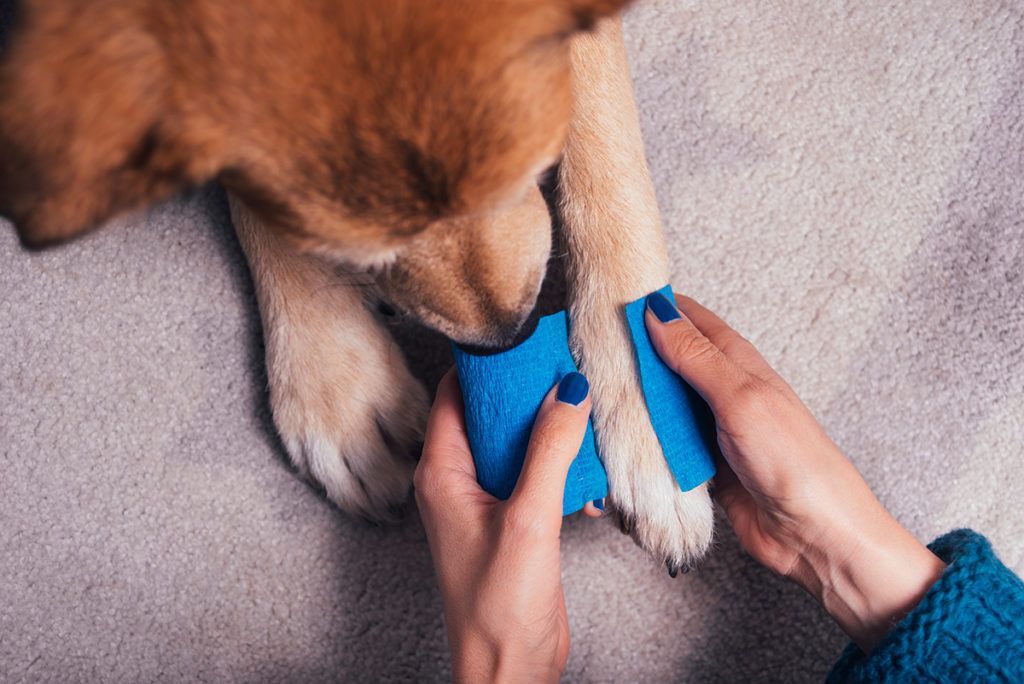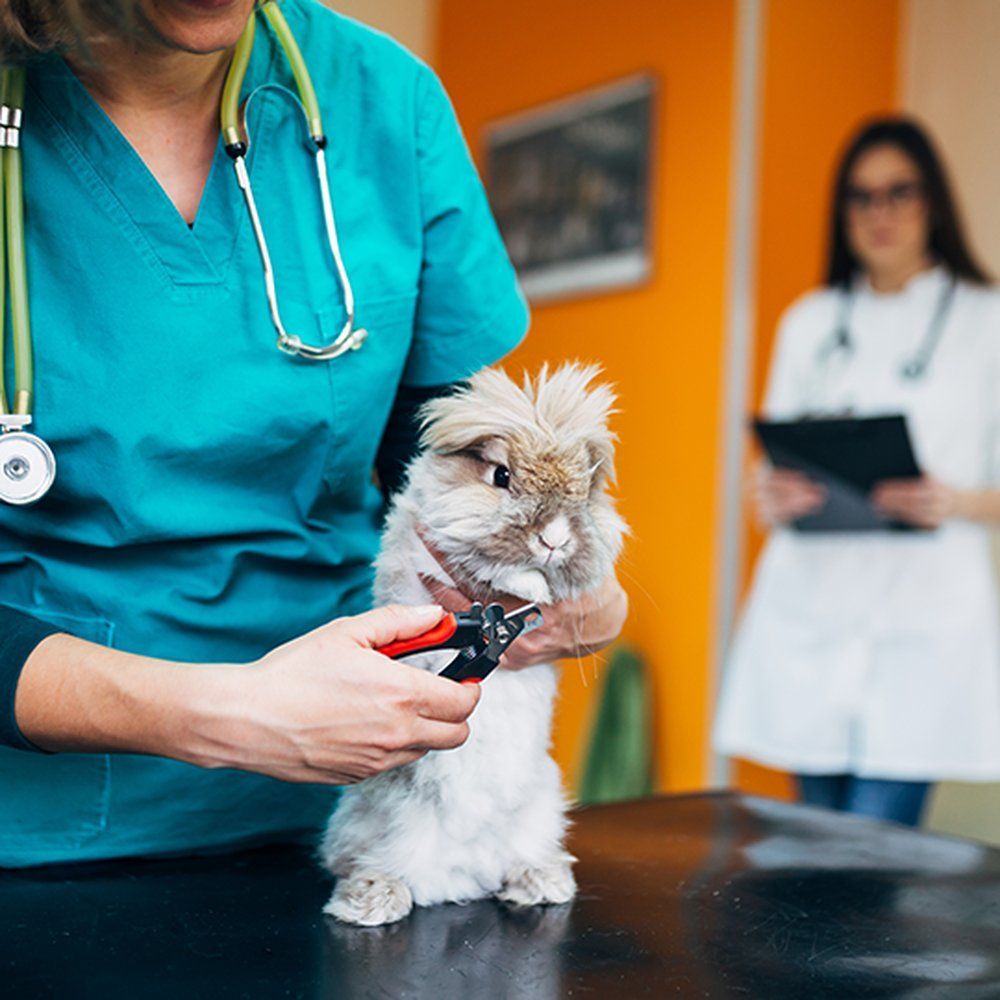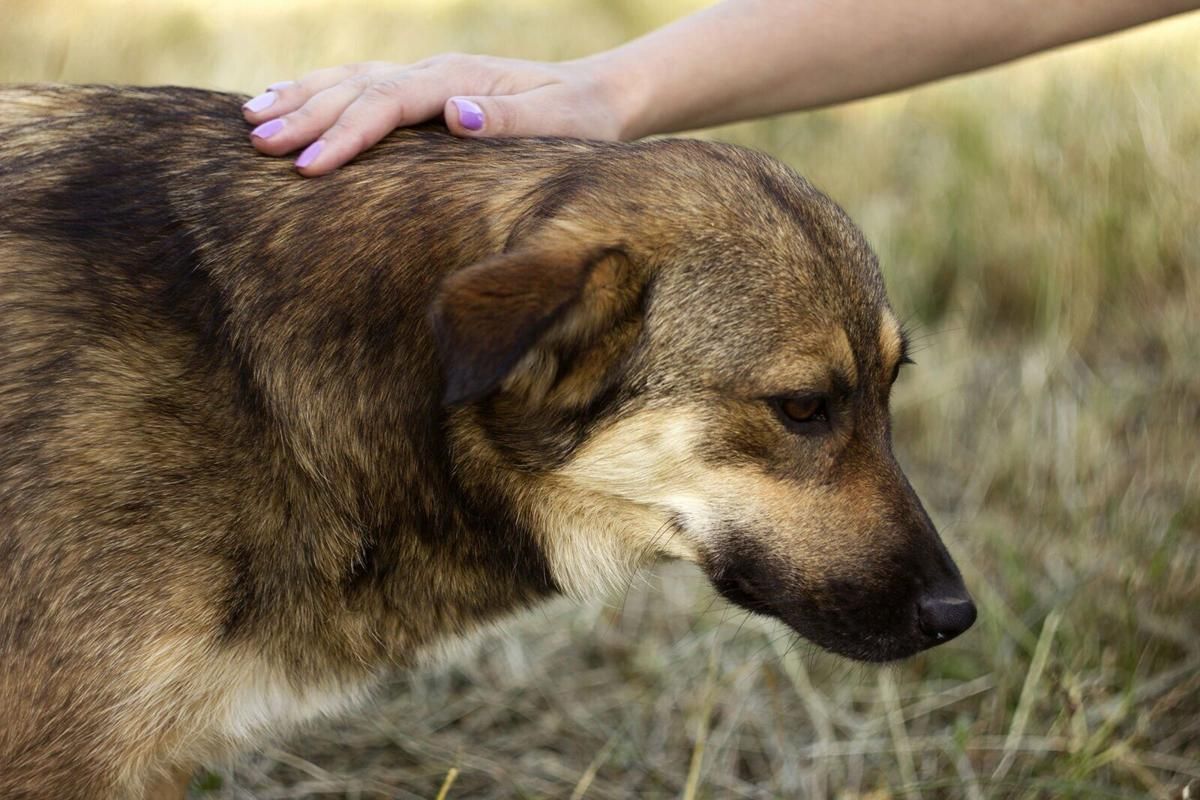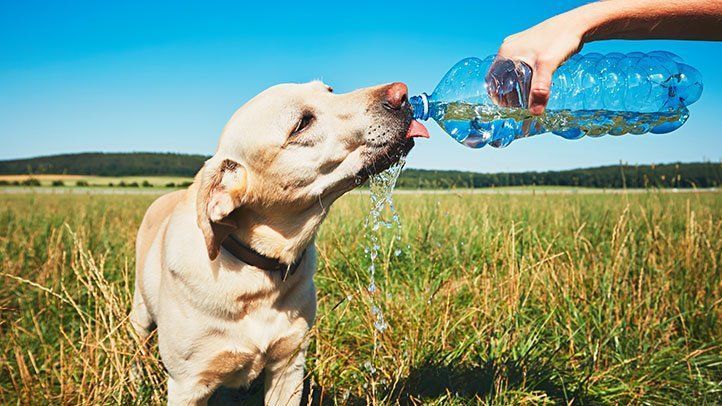9 Ways to Prepare Your House and Yard to Avoid Common Pet Hazards in the Spring
When spring is just around the corner, many pet owners are ready to start their gardens and plant those spring flowers. However, pet owners should be aware of several pet hazards that come with spring projects, gardening, and lawn care.
Springtime is a wonderful time of year to spend hiking or enjoying the outdoors with your best friend, but it can come with some hazards as well. According to Ahna Brutlag , DVM, MS, assistant director at Pet Poison Helpline, many of the calls received by Pet Poison Helpline involve pet ingestions of yard and garden products that may have harmful chemicals or ingredients.
Tips to Help Avoid Common Spring Pet Hazards
Below are listed 9 ways to ensure that your house and yard are pet-safe in the spring:
Avoid Cocoa Bean Mulch
Gardeners typically like to put down mulch for their gardens in the spring, however, pet owners should be aware that certain mulch products can be harmful. Mulch comes in a variety of forms, but by far the most dangerous to your pet is cocoa bean mulch.
This product is made of discarded hulls of the cocoa bean, by-products of chocolate production, and as most pet owners know, cocoa and chocolate are toxic to dogs and cats because of the ingredients of theobromine and caffeine contained in chocolate. Although it is hard to say what amounts of cocoa bean mulch are dangerous for pets, it’s always best to be safer than sorry and avoid using these mulch products if possible.
The ASPCA recommends that pet owners use less toxic mulches, like shredded pine bark, and keep an eye on pets if they’re around mulched plants or garden beds.
Avoid Certain Fertilizers, Soil Additives, and Pesticides
Most fertilizers are not particularly dangerous to pets, but those fertilizers that contain bone meal or blood meal contain a lot of iron and feather meal which can be dangerous to dogs.
Those fertilizers that contain a lot of iron can result in iron poisoning. Also, soil additives, pesticides, and insecticides that contain organophosphates (often found in systemic rose care products) can be life-threatening even in small amounts.
For pet owners who wish to apply pesticides, it may be best to research organic products that are not harmful to pets to avoid this common springtime hazard , as many commercial pesticides can cause skin irritation and other reactions.
Avoid Snail and Slug Baits
Another way to spring-proof your home and yard is to avoid placing slug and snail bait in pet areas. These baits come in the form of pellets, powders or liquids, and contain the active ingredient metaldehyde, which is highly toxic to both dogs and cats.
When ingested, metaldehyde produces clinical signs within one to two hours, including salivation, restlessness, vomiting , tremors, seizures , and high body temperature. If you think that your pet may have ingested any of these baits, contact an emergency vet immediately, because, without quick attention, symptoms can last for several days and eventually cause death.
Avoid Compost
Composts are great for gardens, but not for pets or wildlife.
When organic matter decomposes, molds and bacteria can grow, some of which produce substances called mycotoxins, which when consumed by an animal, results in sickness and physical distress in as little as 30 minutes. Symptoms of compost ingestion include agitation, panting, drooling, vomiting, tremors and seizures.
If you think that your pet has ingested compost, contact an emergency veterinarian immediately. If caught in time, the prognosis for recovery is good.
Avoid Certain Flowers and Plants
There are several flowers, plants, and trees that are dangerous to pets, and should either be avoided or placed out of a pet’s reach.
Sago Palm
This indoor/outdoor plant is popular in warmer climates but can be extremely harmful to pets. Each part of this plant (the leaves, roots, and seeds) is especially poisonous to dogs, and even ingesting a small amount can cause severe vomiting, bloody stools , damage to the stomach lining, severe liver failure, and, in some cases, death.
The sago palm is considered one of the most deadly plants to dogs because long-term survival is poor, as only 50% of dogs who ingest this plant survive, even with veterinary treatment.
Lilly of the Valley
Lily of the Valley plants are a favorite spring plant to have in houses and gardens, however, they contain cardiac glycosides, which are also used in human heart medications to decrease heart rate.
If ingested by dogs or cats, this plant causes vomiting, diarrhea, reduced heart rate, cardiac arrhythmias, and even seizures. If you think that your pet has ingested this plant, seek immediate veterinary care.
Lillies
Lillies are lovely but can be deadly for pets, especially cats. Specific varieties, such as the Peace, Call, and Peruvian Lillies cause minor symptoms, but the “true lilies” such as Tiger, Day, or Easter Lillies are highly toxic and deadly to cats, even if eaten in small amounts. Even the water in a vase containing true lilies is highly poisonous because the toxin is water-soluble.
If a cat consumes any portion of these true lilies, contact a veterinarian immediately. Lilly ingestion can cause acute kidney failure in cats .
Avoid Certain Fruit Trees, Nut Trees, and Berries
Pet owners who have fruit trees, or trees that produce berries, need to prevent their pets from eating fallen fruit pits or other plant parts that could cause GI blockage, choking, or even poisoning.
Cherries and grapes are toxic to dogs, and citrus fruits such as limes or lemons can cause some GI upset. Also, walnuts can be toxic to dogs, especially if they are moldy. Moldy walnuts contain mycotoxins, fungi that can cause seizures and other neurological conditions.
Put Away Garden Tools and Machinery
Part of the joy of spring is gardening, but dropped rakes, shovels, garden forks, and other tools can lacerate paws if the tines are facing up. It’s always a good idea to keep these tools, lawn mowers, and other machinery separate from pets.
Provide Shade and Shelter
As the months get warmer, pets can be susceptible to heatstroke , and become sunburned or dehydrated. If your pets go outside, it’s a good idea to protect them by providing shade, and lots of fresh, clean drinking water.
Be Careful of Pools and Ponds
Many pet owners enjoy having a swimming pool, or a pond on their property, but as the days get warmer, it’s important to make sure that your pet cannot accidentally fall into a pool or pond.
Many pre-made ponds are usually designed with steps, so animals and people can walk out, but for deeper ponds, smaller dogs may be at risk of getting stuck or drowning.
Get Help Right Away if Your Pet Experiences a Common Springtime Hazard
Springtime is a wonderful time of year to get out and enjoy the sunshine and new growth, however, always keep in mind possible pet hazards that may be lurking around your home and yard.
Contact with your local vet for the best advise
Resource Center









